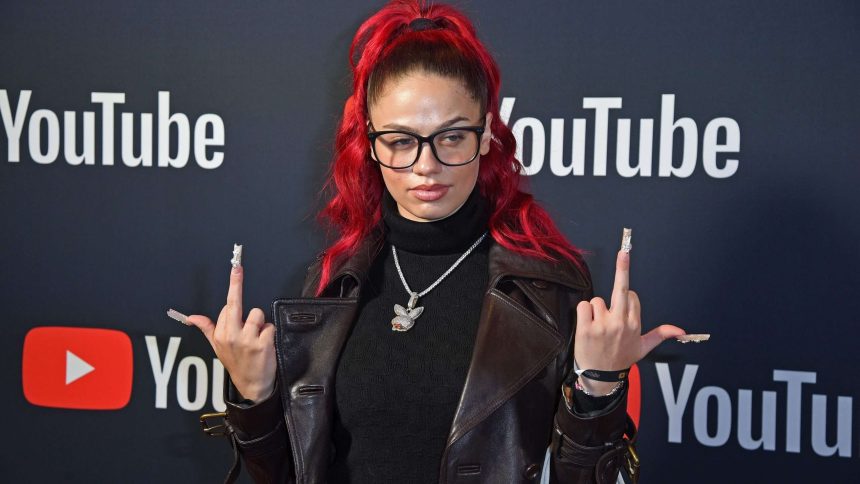As of Monday, creators can now include strong language — including the “F-word” — within the first seven seconds of a video without risking demonetization. Previously, such language would trigger limited or no ads, significantly affecting a video’s revenue potential.
The new rules reflect a broader shift in how YouTube balances brand safety with creative freedom. According to YouTube, advertiser preferences have evolved, allowing for more nuanced tolerance of strong language in content that still aligns with their brand image.
“Over time, advertisers have gained more control over where their ads appear, and many now understand that occasional profanity doesn’t always mean low-quality or unsafe content,” said Conor Kavanagh, YouTube’s Head of Monetization, in a video update.
A win for authenticity — or just shifting the burden?
This announcement marks a clear departure from the stricter policy implemented in 2022, which penalized videos that included profanity in the opening seconds. Even after a partial relaxation in 2023, monetization remained inconsistent — a source of growing frustration for content creators.
The new guidelines clarify that occasional use of strong profanity is now fully eligible for ads. However, creators still face limitations if their videos include excessive profanity, particularly in thumbnails, titles, or repeated usage throughout the content.
For many creators, the update is a welcome reprieve. Language is not only a stylistic choice but often a reflection of identity, humor, or culture. With clearer guidance and fewer automatic penalties, creators can now take more creative risks without fearing the loss of ad income.
Yet the change comes with a note of caution. “Just because you can swear doesn’t mean you always should,” Kavanagh added. “Think about your audience, your tone, and the message you’re trying to deliver.”
The African angle: Navigating culture, code-switching, and global policies
For African content creators especially, those emerging from urban hubs like Lagos, Nairobi, and Johannesburg, the impact is mixed. On one hand, the policy gives room for authentic voice, including code-switching that blends English, Pidgin, and local dialects that often include strong expressions. On the other, many African societies still hold conservative views on language, and regional advertisers may not follow YouTube’s lead.
“YouTube’s policies might change, but that doesn’t mean Nigerian advertisers or telecoms will want their products next to videos with heavy slang or swearing,” says Dayo Alade, a YouTube partner in West Africa.
There’s also concern about the AI moderation tools that detect and interpret profanity. These systems, largely trained on American English, may misinterpret African accents, slang, or mixed-language speech — leading to false flags or unfair demonetization.
Despite this, some African creators see opportunity. Channels that focus on comedy, street interviews, lifestyle commentary, and music reactions — often sidelined by past policies — may now find fewer barriers to monetization.
Why It Matters
The rule change is part of a wider trend in platform moderation: the move toward nuance, context, and advertiser-led flexibility. As video platforms compete for creator loyalty, companies like YouTube are realizing that overly rigid content rules can stifle engagement and innovation.
Still, critics argue that policy reversals like this highlight inconsistent enforcement and a lack of long-term vision. “Creators shouldn’t have to second-guess the rules every year,” one digital strategist told Al Jazeera. “Stability is just as important as freedom.”
While YouTube’s shift may empower creators globally, it also reopens debates about cultural norms, free expression, and who ultimately decides what’s acceptable online. For African creators navigating the intersections of local identity and global algorithms, the challenge now is to stay authentic without losing income — or relevance.
One thing is clear: the language of the internet is changing, and the platforms are learning to keep up.
Talking Points
YouTube’s Policy Shift Is Less About Creators, More About Profit. Let’s be honest: this isn’t YouTube suddenly embracing free speech. It’s a calculated business decision.
As more advertisers learn how to control ad placements, YouTube is shifting the risk — and responsibility — back to them. So, while creators get some breathing space, this is really about YouTube retaining ad dollars without having to micromanage “clean” content.
For African Creators, the Rules Still Aren’t Built with You in Mind. This update may benefit creators in the West, but African content makers are still navigating platforms not trained to understand their accents, slang, or speech patterns.
Profanity detection AI doesn’t understand Pidgin, Sheng, or South African township slang. So who decides what’s “too much” or “contextually okay”? If the bots still mislabel you, this new policy is just old wine in a new bottle.





